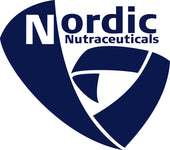-
Make sure to supplement with all the B vitamins
Because the B-vitamins are water soluble, they are with few exceptions virtually non-toxic - even in large doses - as any possibly excess of these water-soluble vitamins do not accumulate in the body but are rapidly excreted via urine. It is always recommended to take the entire B-vitamin complex, as a whole because they work in synergy with each other. This is probably also the reason why the B vitamins naturally often occur together in foods containing B vitamins.
"Active" in the product name is merely a reflection of the fact, that the product is largely based on activated B-vitamins. The activated forms used are Riboflavin (B2), niacin (B3), Vitamin B6, Folic acid (B9) and vitamin B12.
Zinc from 3 sources that work in synergy
What is zinc L-pidolate?
Pidolates are characterized in that they have a good bioavailability in the body, like other organic sources, such as. amino acid chelates. Pidolate - in this case Zinc-L-Pidolate - consists of elemental zinc linked to organic L-Pidolate (Pyrrolidon Caboxyl Acid (PCS)), which is a natural, physiologically active substance that is actively involved in vital processes in the body.
What is zinc bisglycinate?
Zinc bisglycinate has shown a very effective absorption. Zinc connects to the amino acid glycine. Glycine is one of the body’s smallest amino acids, and its low molecular weight makes it particularly suitable for being used as an amino acid complex. Glycine has several important metabolic functions in the body and is included, for example. in the formation of collagen, in the synthesis of creatine as well as as a neurotransmitter in the nervous system.
What is zinc citrate?
Zinc citrate is one of the richest organic-bound sources of zinc. Zinc connects to citric acid. Citric acid is part of Krebs’ cycle and contributes to cellular functioning and energy production. When coupled to zinc, the water solubility of the mineral increases, and thus also its bioavailability.
-
How do the B vitamins work in the body?
-
Immune system: vitamin B6, folic acid and vitamin B12 contribute to the normal function of the immune system.
-
Fatigue and exhaustion: vitamin B2, pantothenic acid, vitamin B6, folic acid and vitamin B12 help to reduce fatigue and exhaustion.
-
Nervous system: vitamin B1, vitamin B2, niacin, vitamin B6, biotin and vitamin B12 contribute to the normal function of the nervous system.
-
Endocrine system: Pantothenic acid contributes to normal synthesis and reaction of steroid hormones, and vitamin B6 helps to regulate hormone activity.
-
The blood: vitamin B2 contributes to the maintenance of normal red blood cells, vitamin B6 and vitamin B12 contributes to normal red blood cell formation, and folic acid contributes to normal blood formation.
-
The heart: vitamin B1 contributes to normal cardiac function.
-
Vision: vitamin B2 helps to maintain normal vision.
-
The skin and the hair: vitamin B2, niacin and biotin contribute to the maintenance of normal skin. Biotin contributes to the maintenance of normal hair.
-
Liver function, lipids, and homocysteine: choline contributes to the maintenance of normal liver function. Choline contributes to normal metabolism of fats and to maintain a normal homocysteine metabolism.
What are the benefits of Zinc:
-
Eyes, skin, hair and nails
This mineral is part of several enzymes necessary for the conversion of vitamin A, which is crucial for the eye’s ability to see. It also helps to maintain normal skin, hair and nails.
-
Immune system and antioxidant defense
Zinc helps the immune system to function normally. This mineral is part of the body's antioxidant defense which protects the body's cells against oxidative stress.
-
Bones
Zinc helps maintain normal bones. This is because it forms a structural part of the bones, while also supporting the formation of bone tissue by activating important bone-forming enzymes.
-
Hormone system
Zinc contributes to normal fertility and reproduction. The formation of sperm cells is dependent on this mineral. It also helps to maintain a normal testosterone level in the blood.
-
Recommended dose OmniVegan B-Active: 1 capsule daily.
Recommended dose OmniVegan Zinc: 1 tablet daily.
Size: Both products are available in pots with 120 capsules (B-Active) and 120 tablets (Zinc), covering a 4 months supply.
Warnings: Do not exceed the recommended daily intake. Store in a dry, cool place. Keep out of reach of children. Food supplements must not replace a balanced diet and a healthy lifestyle. If you are pregnant, breastfeeding, taking any medications or under medical supervision please consult a doctor before use.
Do not use if outer/inner bottle seal is missing, torn or damaged in any way.
-
1 capsule OmniVegan B-Active typically provides:
| Vitamin B1 (Thiamine Mononitrate) |
31 mg
|
2818% |
| Vitamin B2 (Riboflavin 5’-phosphate) |
25 mg |
1786% |
| Niacin (Inositol Hexaniacinate) |
50 mg |
313% |
| Pantothenic acid (Calcium-D Pantothenate) |
50 mg |
833% |
| Vitamin B6 (Pyridoxal 5’-phosphate) |
12 mg |
857% |
| Biotin (D-Biotin) |
200 μg |
400% |
| Folic acid (L-Calcium Methylfolate) |
400 μg |
200% |
| Vitamin B12 (Methylcobalamine) |
100 μg |
4000% |
| Choline (Choline Bitartrate) |
100 mg |
* |
| Inositol (inositol/Inositol Hexanicinate) |
100 mg |
* |
| Sunflower lecithin (Phospholipid blend) |
50 mg |
* |
NRV = Nutrient Reference Value. *=No NRV Assessed.
OmniVegan B-Active ingredients: choline; capsule: pullulan; inositol, pantothenic acid, niacin, sunflower lecithin, vitamin B2, vitamin B1, vitamin B6; anti-caking agents: Vegetable magnesium salts of fatty acids, silicon dioxide; folic acid, biotin, vitamin B12.
| 1 tablet OmniVegan Zinc 3 typically provides: |
|
%NRV |
| Zinc from 3 organic sources |
20 mg |
200% |
NRV = Nutrient Reference Value.
OmniVegan Zinc 3 ingredients: anti-caking agent: microcrystalline cellulose; zinc L-pidolate, zinc bisglycinate, zinc citrate; anti-caking agent: silicon dioxide; coating: hydroxypropyl-methylcellulose; anti-caking agent: vegetable magnesium salts of fatty acids; coating: vegetable glycerol.






